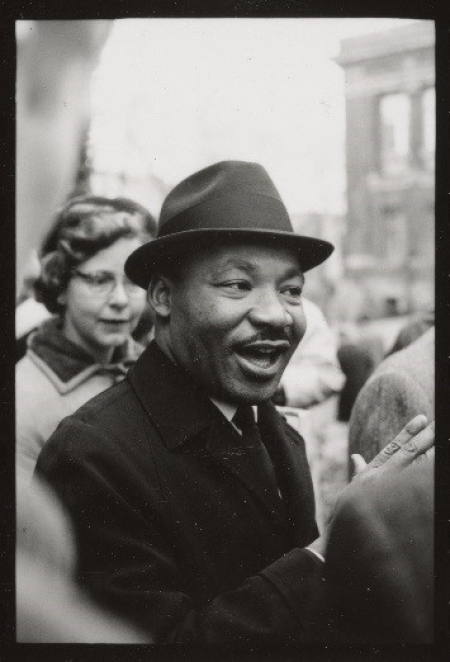CAMBRIDGE, MA — 1968 was a year of convulsive change that forever transformed the world. Opening on the 50th anniversary of the assassination of Dr. Martin Luther King, Jr., Harvard, 1968. in Pusey Library on the Harvard campus captures the turbulent year through the perspective of the students who lived through it: the Class of 1968.
Featuring materials drawn from the Harvard University Archives, the exhibition illuminates what it meant to be a student experiencing—and helping to shape—the political, cultural, and scientific changes that swept the world in the 1960s. The exhibition is free and open to the public between the hours of 9 a.m. and 5 p.m., Monday through Friday.

1968 was a year of questioning. Whether it was the government, the military, discrimination that repressed the rights of African-Americans, or the role of women in society, college students not only questioned the voices of the establishment, but the establishment itself.
These sweeping changes are reflected in examples from the Archives, such as photographs, letters, speeches, newspapers, posters, and a recording that document the upheaval on Harvard’s campus and put University events into a wider cultural context. Also featured are views of others in the Harvard community, including some of the key faculty voices of the time.
Visitors will discover topics such as:
- Community reaction to the assassination of civil rights leader Dr. Martin Luther King, Jr. and activist Senator Robert F. Kennedy '48
- Coretta Scott King’s Class Day speech that she gave in place of her husband
- Photographs taken by a Harvard graduate of the civil rights march led by King from Roxbury to Boston Common, 1965
- Materials ranging from impromptu flyers and photographs from student-led campus demonstrations to a former student soldier’s jacket from the Vietnam War
- Faculty correspondence and other documents about the nuclear arms race and teach-ins
- Rare photograph of the Beatles’ Ringo Starr with Erich Segal, AB 1948, AM 1959, PhD 1965
- Samples of the music and writings reflecting the “flower power” on campus
From the American Revolution in the 18th century to the ongoing protests of the 21st century—#MeToo, Black Lives Matter, LGBTQ rights, the rights of undocumented immigrants to the US—the Harvard community has been influenced by and taken part in movements that define our shared history. Harvard, 1968. tells the stories that connect several generations of the Harvard community from 50 years ago to 2018.
About Harvard Library
Harvard Library is a world-class academic library, an unparalleled resource for learning and research. By creating flexible spaces and innovative services, Harvard Library inspires collaboration, reflection, experimentation, and discovery. Serving as an information hub, the Library connects users to related disciplines and to University-wide teaching resources.
Engaging users through curated discovery, digital collections, reimagined physical space, and specialized research support, Harvard Library delivers exceptional experiences to its user communities. Today, Harvard Library’s holdings range from traditional print collections to rapidly expanding access to digital resources. It is the work of the Harvard Library to provide the University's faculty, students, and researchers—now and in the future—with comprehensive access to these materials.